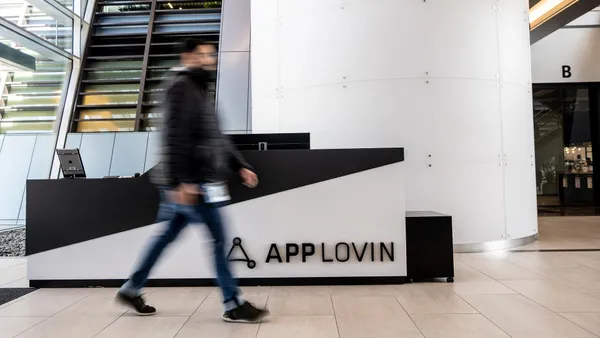Dive Brief:
- Walmart, Amazon, Burger King, KFC, Overstock.com and De Beers are among some of the major brands embracing blockchain technology, per a report in ClickZ.
- Two-thirds of large corporations plan to integrate the technology into their businesses by the end of 2018, according to data from Juniper Research cited by the publication. Seventy-six percent of those surveyed by Juniper Research said blockchain could be "very useful" or "quite useful” for their company, while only 15% knew "very little" about it.
- Applications of blockchain vary greatly, however: Walmart is using IBM's Blockchain Platform to track food products through the entire supply chain, and diamond producer De Beers is similarly using it to track gems as soon as they're excavated. Burger King Russia created a Whoppercoin that links up with its loyalty program while Overstock accepts cryptocurrency payments. Amazon launched the Amazon Web Services Blockchain Partners Portal late last year, supporting the integration of blockchain.
Dive Insight:
Blockchain has the potential to solve many of the issues businesses are grappling with in 2018, especially in regards to improving transparency across the digital media supply chain by providing a secure online ledger for transactions to occur. Big-name brands like Amazon, Walmart and others quickly adopting and implementing the technology reinforces that it's one marketers must watch carefully and get a grasp on sooner rather than later.
ClickZ's report underscores how broad applications of blockchain can be, however, with companies like Walmart or Amazon applying it to internal logistics or B2B services while fast-food brands such as Burger King and KFC leverage it for loyalty programs or marketing stunts. KFC's take on blockchain was a "Bitcoin Bucket" deal worth $20 of the popular cryptocurrency, for example.
Marketers planning to use blockchain may additionally have to overcome consumers' general lack of knowledge about the technology and how things like cryptocurrency work. Blockchain gained a lot of its early traction in sectors like financial services for its security proposition, but a growing amount of fraud in the space has raised the specter of tighter regulations and impacted some of the major digital advertising platforms.
Using digital ads to fraudulently mine cryptocurrency is called "cryptojacking," a practice that's relatively new but increasingly making headlines. Malware recently infected Google DoubleClick ads on YouTube, delivering ads to users that contained cryptocurrency mining software. This week, as a potential countermeasure to this type of scheme, Facebook announced that it was broadly banning ads for cryptocurrencies, initial coin offerings and other financial products or services that are associated with misleading practices.












